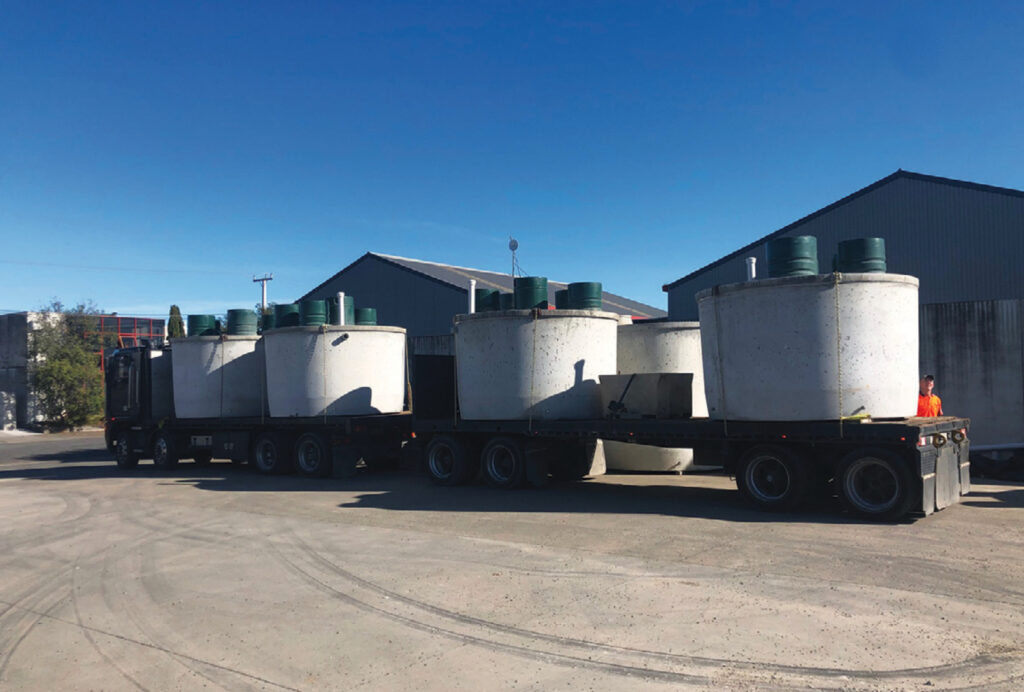With its firm commitment to a clean and healthy future, EMS designs and builds wastewater manage- ment systems that are commercially viable, environmentally beneficial, and in turn, reduce the health risk associated with the contain- ment, treatment, and discharge of effluent from lifestyle blocks and rural homes.
From its beginnings in the Hawke’s Bay in 1995, EMS has transitioned from a successful plumbing and drainage company into an even more successful specialist wastewater company. A lot of this success is thanks to an exceptional team of people who live and breathe wastewater (we draw the line at drinking it!).
Director Steve Crockford says the team’s interest in improving environmental outcomes was the key driver in the search for alternatives to the traditional septic tank. “In the early days, septic tanks were the accepted way of managing sewage discharge to land in the rural environment, but from an environmental perspective, they are not that good,” he says. “So, we started looking for ways to improve the wastewater to a high enough standard that it could be reused. What we now have are wastewater treatment plants that turn what was once considered a waste product into a valuable resource that can be used to irrigate landscaped areas around our clients’ homes.”
On that success, Steve and the team at EMS have built a company based on working with good people for a common goal – achieving the double bottom-line benefit of great outcomes for the client and for the environment. An example of this is the FlowKing Dosing Siphon that Steve designed and built along with some timely help from The Crown Research Institute (now known as Callaghan Innovation). The FlowKing range has grown to include specialist polyethylene products, wastewater treatment plants, solar powered options and tailor-made commercial effluent management systems.
Hastings and Napier Councils have trusted EMS to provide some of these systems to serve a number of public toilets blocks along Hawke’s Bay coastline. Prior to these new systems, there were only old toilet blocks and ancient septic tanks that were well past their use by date and in some cases, allowed untreated effluent discharge direct to the sea.
Alongside public amenities, EMS designs, builds, and services wastewater management systems for rural properties, schools, marae, papakāinga, camping grounds, RSE villages, and local authorities.
Continuing the innovation ethos founded all those years ago, EMS has recently started using recycled glass instead of hard-to-source sand as a filter media in its wastewater treat- ment plants. While sand provides excellent trickle-down filtration of effluent, there is actually a global shortage of this second-most used resource in the world so it was clear that a reliable replacement needed to be found.
Over a beer after work, one of the EMS team suggested recycled glass, so Steve found and partnered with glass recovery firm 5R Solutions, realising he could use the same design principles as with sand filter systems. This move has brought new benefits for the company, its clients, and the environment it strives hard to take care of every day.
“The difference glass has made to our sustainability efforts has been revolutionary,” Steve says. “This crushed and graded recycled glass has fantastic quality and consistency, a lower carbon footprint, sustainability, and cost-effectiveness. We are repurposing an already recycled waste product in a way that creates further environmental improvements, and it is a New Zealand-made product not an imported solution. It is a win-win on all fronts.”

Ready to find out more?
Drop us a line today for a free quote!
